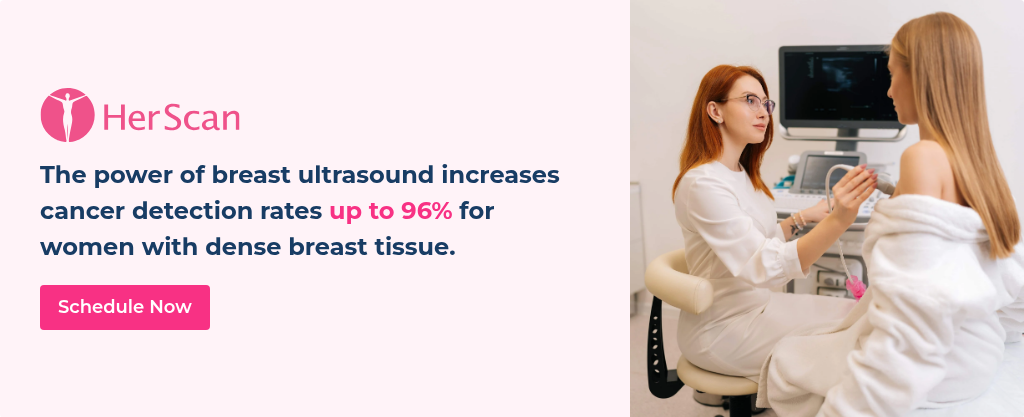In the fight against breast cancer, prevention and early detection is everything. However, many women who are younger than 40 years old may not feel like they are at risk of developing this disease. It’s an unfortunate truth: breast cancer can strike at any age and occurs in 5% of women who are under age 40, making it exceptionally important to begin early screening if known risk factors are present.
Continue reading to discover why younger women are developing breast cancer and the risk factors that may put you at a higher risk.
Risk Factors that Increase the Risk of Developing Breast Cancer
For women, there are a number of risk factors that play a role in developing breast cancer at a younger age. These risk factors include:
- Family history of breast or ovarian cancer
- Having a genetic defect (BRCA1 and BRCA2 mutation)
- Being exposed to radiation therapy in the breast or chest area during childhood or young adulthood
- Getting your period before age 12
If you do not possess any of these risk factors, you are assumed to have an average risk of developing breast cancer. However, if you are predisposed to breast cancer due to a genetic mutation, screening can begin at age 25. If a family member has been diagnosed with breast cancer, screening can begin 10 years earlier than the age that the family member was diagnosed.
Breast Cancer in Young Women - The Facts
Besides skin cancer, breast cancer is the most common cancer among American women. It used to be that 1 in 12 women were at risk of developing breast cancer in her lifetime. However, a woman’s lifetime risk has recently increased to 1 in 8 chances of developing this disease.
Most women develop breast cancer at age 50 or older, but breast cancer occurrence has been increasing in younger populations. In fact, approximately 11% of all new breast cancer cases are being found in women who are under the age of 45.
Routine screening may not be recommended before age 40, making it less likely that cancer is detected in early stages. Women who develop breast cancer at a younger age are likely to have a hereditary predisposition (such as the BRCA1 or BRCA2 gene) to breast cancer, making it more aggressive and less likely to respond to treatment. In fact, young adults (age 40 or less) have a higher mortality rate when it comes to breast cancer. They also have a higher risk of developing metastatic recurrence (or return of breast cancer in areas outside of the breast).
Diagnosing breast cancer in young women proves exceptionally challenging due to breast tissue being denser during this age. Dense breast tissue, as opposed to fatty breast tissue, is composed of more fibrous or glandular tissue than fat, making it much harder to read on a mammogram. This makes it vital to be proactive in breast cancer screenings, especially for women with dense breasts, and add a Breast Ultrasound to her annual healthcare regimen.
Lower Your Risk for Developing Breast Cancer
Aside from lifestyle changes that you can control to decrease your likelihood of developing breast cancer (exercise, eating healthy, refraining from smoking and alcohol use) you should also remain diligent and receive early mammogram and ultrasound screenings at age 40, or sooner than age 40 if you have known risk factors.
Take into account, detecting breast cancer in its early stages significantly increases survival rates. In fact, 90% of women who detect stage I breast cancer have a 90% survival rate. Stage IV cancer, or metastatic breast cancer, where cancer has spread outside of the breast to lymph nodes, has the poorest prognosis.

